Studies
The European Migration Network produces 3–4 thematic studies per year. The thematic studies address a specific migration-related theme that is current or otherwise relevant. The themes are selected on the basis of proposals made by the National Contact Points and the European Commission. The National Contact Points first prepare national reports regarding the study, based on which the Commission’s service provider writes an EU-level synthesis report. The synthesis reports are available on our website and the EMN’s international website. The national reports concerning Finland are available on our website in bilingual publications in Finnish and English.
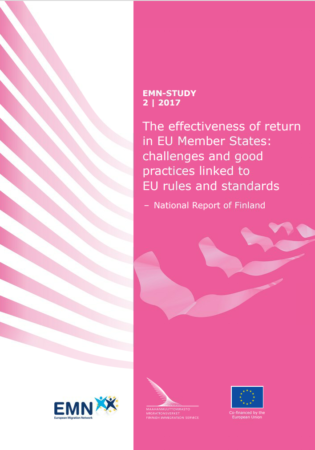
This study looks at the effectiveness of return in Finland. Finnish return policies and practices will be examined in relation to the EU rules and standards. It is stated in the study that return of persons who are residing irregularly in the country is an increasing challenge for Finland. Theobstacles are not, however, directly linked to
the EU rules or standards. On the basis of this study it can be noted that return policies and practices in Finland are effective and to a large extent in line with the EU rules and standards.
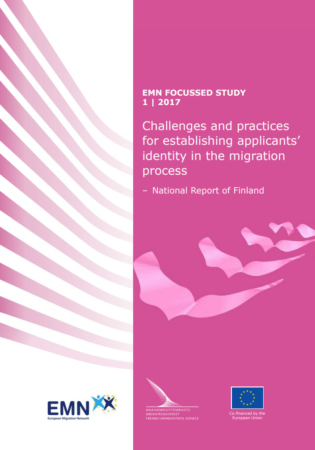
This Study covers approaches to establish the identity of third-country nationals within the migration process, looking both into identification and identity verification related tasks. This is addressed within the context of the asylum procedure, return procedure, as well as legal migration channels, i.e. applications for short-stay visas and for long-stay visas/residence permit for study, work and family purposes.
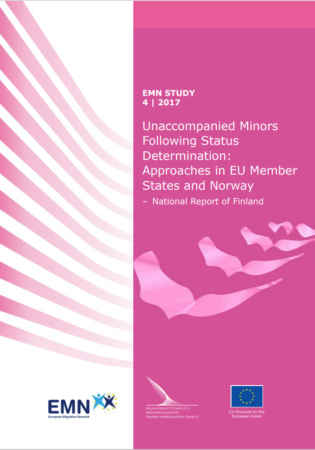
This study examines the situation of unaccompanied minors who have received a positive or negative permit decision in Finland. The study takes a look at the housing, care and integration-related measures provided to unaccompanied minors who have received a positived permit decision. In addition, procedures related to return of minor are examined, as well as how to proceed with those unaccompanied minors who cannot be returned. The study also describes the procedures after minors turn 18. The last section of the study deals with disappearances of minors.
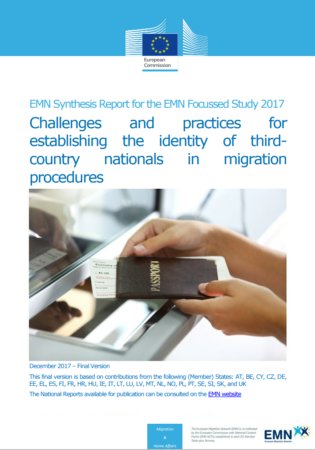
The following report presents an overview of the important challenges faced by national authorities in EU Member States and Norway in their efforts to establish and verify the identity of third-country nationals within the context of various migration procedures and of national practices to address those challenges. Moreover, the study provides an insight into the use of information management systems at national and European level to support identification and verification processes.
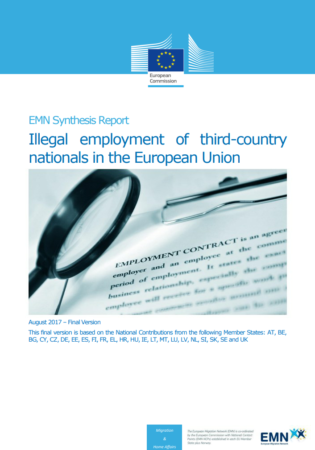
The following Report presents a comparative overview of the main findings of the EMN Study on Illegal Employment of Third-Country Nationals (TCNs) in the EU based on National Reports from twenty-three Member States. The aim of this Study is to map and analyse the measures in place at Member States level to fight the illegal employment of TCNs, possible problematic areas and obstacles in this field and strategies and good practices to overcome them.
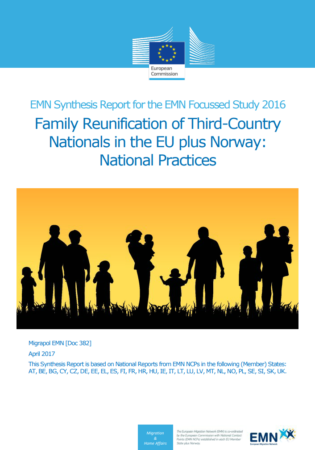
The following Report presents a comparative overview of the main findings of
the 2016 EMN Study on Family Reunification of Third-Country Nationals (TCNs) in the EU plus Norway. The Study aims to compare national policies and/or practices on family reunification between the different EU Member States plus Norway, and to provide up-to-date information on the latest developments in this area of legal migration to Europe since 2011 onwards.
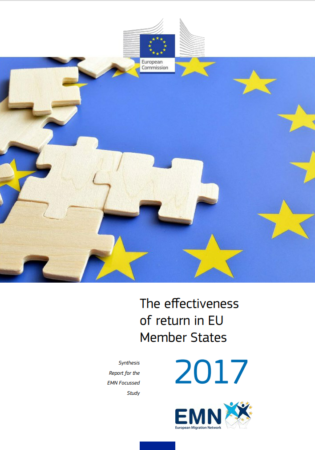
The return of illegally-staying third-country nationals is one of the main pillars of the EU’s policy on migration and asylum. However, recent Eurostat data show that return rates at EU level have not improved despite the important increase in the number of rejected asylum applications and in the number of return decisions issued since 2014. The EMN conducted this study with the purpose of investigating good practices and challenges in Member States’ application of EU rules on return and equivalent standards.
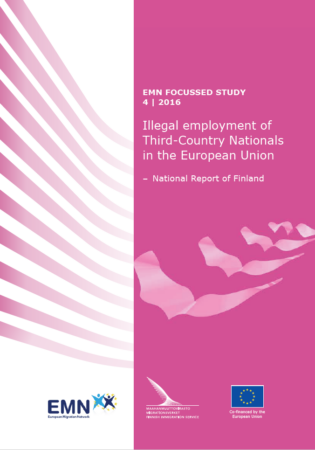
This study focusses on illegal employment of third-country nationals (TCNs) in Finland. The concept of illegal employment of third-country nationals covers both the employment of irregularly staying migrants, meaning a TCN who does not fulfil, or no longer fulfils, the conditions of entry, and the employment of legally staying migrants who do not have the right to work in Finland or are working outside the conditions of their permit.